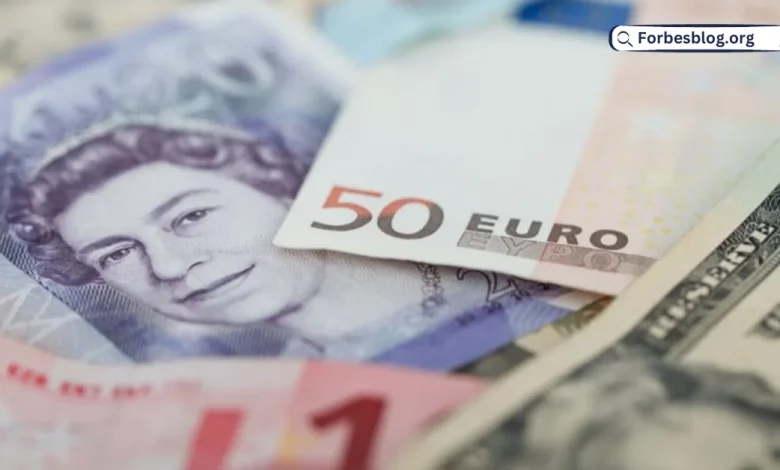Trade Currency With Others Abroad: Things to Know About Exchange Rates

There is a lot to think about when you’re getting ready to travel abroad! You need to pack for the local climate, bring along chargers that fit the foreign outlets, and learn a few phrases in the local language.
With so much to do before you depart, it’s easy to forget to trade currency before you go!
If you’re traveling with a wallet full of green, you’re not out of luck. You can learn how to exchange dollars for other currency types once you’re in your destination country. The local exchange rates might even multiply the money you brought along, even if you were pinching pennies in the states!
This article will provide you with a rundown of everything involved with how to exchange USD for other currency. Read on to learn the answer to the question “how do currency exchanges work?” no matter where you roam!
Table of Contents
How to Trade Currency Abroad
You might think the easiest thing to do is exchange your currency at an airport kiosk as soon as you land. After all, they’re convenient, and you’re going to need cash. As it turns out, you can save a lot of money in fees if you are willing to wait just a little bit longer before swapping those dollars to rupees.
A foreign exchange house isn’t any better. You will find the lowest fees at either a bank or a credit union. Ideally, you’ll be able to find an ATM affiliated with your current bank or credit union.
Most banks have an app that will allow you to find the nearest ATM using your phone’s GPS. If you need to settle for another bank or credit union, your best bet is to withdraw a larger amount, rather than doing a few smaller transactions. That will reduce the number of fees that you need to pay, including foreign transaction fees and ATM surcharges.
You probably won’t find any ATM that doesn’t charge a fee at all. The goal should be to find the machine that takes the smallest percentage. By choosing an ATM affiliated with your current bank, you could be paying only 1% to 3%, compared to much higher rates at exchange houses.
The cheapest possible exchange rate can be the result of using your credit card overseas. If your credit card company does not charge conversion fees, this is almost always the least expensive way to trade currency.
How Does Currency Exchange Work?
In essence, the exchange rate refers to the amount of US currency (or dollars) that can buy another country’s currency. In countries with fixed exchange rates, this is fairly straightforward. A fixed exchange rate is a value that does not change very often and remains consistent over a long period.
In some countries, however, exchange rates are more flexible. They can change from day to day, even shifting during your trip.
The economic outlook of a country as compared to other countries determines the exchange rate. The social outlook can affect the country’s currency, too.
Fixed Exchange
In the case of a fixed exchange rate, the local government determines the rate of exchange. Usually, countries make these changes according to the current value of the US dollar. This is only possible in countries where the central banks have money in their reserves, allowing them to fully control the value of their currency at any given time.
Usually, this means that the bank in the foreign country is full of U.S. dollars. They can sell the U.S. dollars for their local currency to balance things out. It works on the principle of supply and demand.
Flexible Exchange
Forex, otherwise known as the Foreign Exchange Market, determines the exchange rate in many countries. This means that the national government in those countries does not influence the value of their currency much.
Instead, their policies have longer-term implications on the value of the local currency, allowing them to influence exchange rates, but never control them.
This is the case in a lot of the countries that Americans visit the most often. Some countries with flexible exchange include Europe, Britain, Canada, Mexico, and Japan. The value of this currency can change from moment to moment.
What Affects Currency Exchange?
The three factors that are likely to affect currency exchange include a country’s money supply, its financial stability, and its interest rates. This is something that you can research and plan for. You will want to travel to a foreign country during a time when the U.S dollar is strong, allowing you to buy as much of the local currency as possible.
This is another reason why it can sometimes be wise to trade currency before you leave for your trip. You will be able to ensure that you buy enough currency when the dollar is strongest. If you wait, the value of the dollar may shift before you arrive, making your trip more expensive than planned!
A Strong Dollar Means a Great Trip
It’s easy to get distracted by all you have to do before you leave for your trip, but keeping an eye on the exchange rates before you trade currency is never a waste of your time!
Being proactive can effectively make you money that you can spend while you enjoy your holiday abroad. Avoiding a big fee or exchanging at the right time can buy you a fancy dinner, a fun souvenir, or a night at a nicer hotel!
But, wait! Before you head out on your adventure, have you checked out the rest of the blog? There are plenty more articles that can enrich your mind and make you sound sophisticated when you’re making new friends on your journey!




